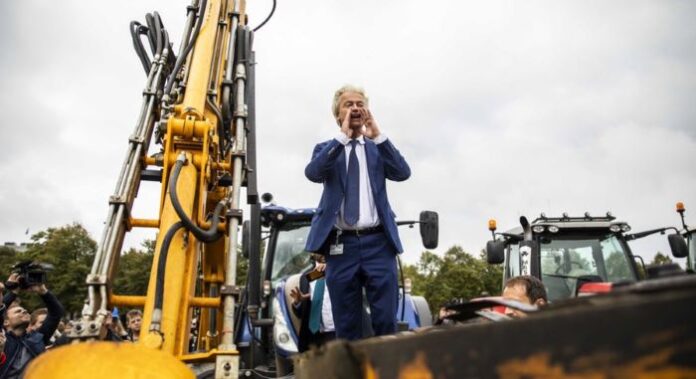The wait is still on for a new Dutch government, as frontrunner Geert Wilders admits that as times goes by the pressure rises on his party and his potential coalition partners.
The Netherlands held elections on Nov 22 but ten weeks later are still short of an agreement for a new government, and long-standing Prime Minister Mark Rutte remains as standing PM. Rutte’s party People’s Party for Freedom and Democracy (VVD) is in talks with Wilders’ and his Party for Freedom (PVV) for a new government. Coalition talks also include centrist new party New Social Contract (NSC) and the farmers’ protest party Farmer–Citizen Movement (BBB).
Wilders said on Thursday ahead of a meeting that “time is pressing and that is not necessarily making things easier.” It is unclear what is stalling negotiations as they are tightly controlled. However, the main intermediary of the talks, Ronald Plasterk, let it slip that finances is at the moment one topic of contention.
The far-right leader Wilders, who emerged as the winner of last elections with 23.5% of the votes, has said on social media that he wants a government “with lower taxes and without painful, large spending cuts.”
However, the president of the Dutch central bank Klaas Knot told all potential coalition parties that they need 17 billion euros in structural spending cuts to keep state finances solid.
The long and laborious coalition talks are not uncommon in the Netherlands. The last government was put in place 299 days after elections in March 2021. In case there is no agreement among the parties, other coalition may be explored, before a new election is called.

